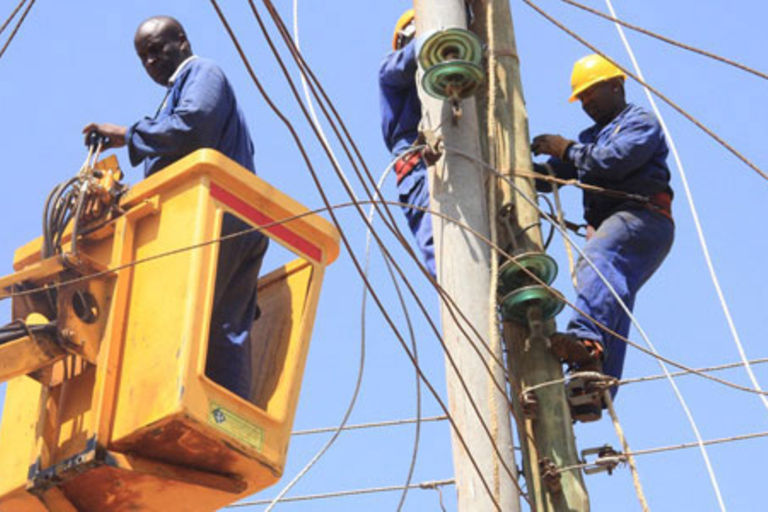How To Stave Off The Resource Curse
Before we plunge into the rather uncertain future of oil production, which may otherwise seem promising, it is high time we paused as a country and gave consideration to the resource curse paradox as a serious omission in policy considerations so far. The resource curse The paradox of plenty is a perplexing concept in which most resource rich countries are unable to transform that wealth into improved livelihood for their population. A study by Richard Auty has shown that since the 1960s, the per capita incomes of resource-poor countries has grown significantly faster than that of the resource-endowed countries, which continues to be a puzzling trend. South Sudan and Chad for example have plunged into years of civil war based purely on oil revenues. Countries such as Ghana, Mexico, and Sweden have also experienced a surprising growth collapse coinciding purely with oil discovery. Nigeria, though rich is diseased with corruption and income inequality. This paradox is therefore not a fallacy, and requires serious thought. The two main manifestations of the resource curse are the Nigerian disease and the Dutch Disease. The Nigerian disease (or rentier states), is the tendency of a very small clique of individuals to benefit from oil rents at the expense of the country. Transparency and accountability are therefore key in averting the Nigerian disease. The Extractive Industries Transparency Initiative (EITI) has been a successful intervention but Kenya has not applied for membership yet. The initiative lays down standards of disclosure and accountability and validates both member states and oil companies against the standards. If oil revenues received by the government are fully disclosed, tracking becomes easier, and corruption harder. An informed population is also less likely to fall into civil wars and unrest as experienced in Turkana for instance. Through the transparency initiative for example, Nigeria has uncovered a discrepancy of $9.8 billion (about 3.3 per cent of its 2009 GDP) in reported oil revenue between the year 1998 and 2009 while Libya has moved significantly in the index of the least corrupt countries. Secrecy within the extractives is a time bomb that we should be weary of, especially with the population already raising question on how the sector is being managed. Perhaps the hardest manifestation to deal with is the Dutch disease. Neglecting local industries, at the expense of non-renewables killed Dutch’s economy. Kenya for example is traditionally mainly depended on agriculture and tourism which are more sustainable than non-renewable oil. If the government is to channel most of the expenditure towards oil and gas infrastructure, then there is bound to be a progressive death of these traditional industries coupled with a massive movement of human capital to the more lucrative but unpredictable oil industry. The key therefore is to diversify as a matter of policy. Dutch disease Dutch disease also comes about through excessive circulation of money within the economy. Without calculated government social policies and programmes to address the oil money in form of wages, this will eventually lead to menaces such as alcoholism, prostitution and spread of sexually related infections such as HIV/AIDs. Of much concern to the economy however is the […]
Read moreConsult stakeholders in the review of Power Purchase Agreements
The presidential task force formed in March to review Power Purchase Agreements (PPAs) has a mandate to among others, scrutinise the deals entered into by the Kenya Power and review the suitability and viability of all independent electricity generation projects that have been proposed, under implementation or in operation. Over the past two decades, Kenya Power has entered into several risk-bearing PPAs with Independent Power Producers (IPPs) hence the logic for a review. Moreover, the PPAs were entered at different times and stages of the power sector development. Some PPAs had onerous terms and clauses that did not address the present risks in power generation. Even though Kenya has over time undergone a lot of legislative changes and policy reviews, the contractual terms of such PPAs are still binding upon the off-taker and IPPs. As such any intended amendment requires proper stakeholder engagement and consultation. Similarly, several projects have been issued with approvals at different stages of project development, from the expression of interest approval towards PPA negotiation. Systematic engagement and renegotiation on terms agreeable to the parties to achieve a win-win result are inevitable. Being contractual documents, the binding nature of PPAs can neither be denied nor wished away. It is, therefore, not possible for one party to unilaterally vary or amend a PPA without the consent of the other. Which consent must be expressed in writing in the circumstances. Ideally in negotiated PPAs, both parties (the off-taker and IPP) provide warranties and representations and equally have obligations that directly impact the validity and enforceability of the PPA. Read Full Article More Articles: Moving Towards Auction Of Renewable Energy Sources
Read moreAdverse Possession: The Easy Path to Land Ownership in Kenya?
Ever wondered why the so called “Squatters” keep experiencing intermittent rattling every couple of years, yet they are allowed to settle back in for a number of years before the next disturbance happens? Well, the answer lies within the doctrine of adverse possession. Adverse possession Otherwise referred to as squatter’s rights is a well-founded doctrine in law that allows a person who has unlawfully occupied another person’s land for a continuous period of at least 12 years to legally apply for registration rights over the property. The three main tests in an adverse possession claim are: (a) one must have occupied the land to the exclusion of others; (b) the occupation must be without the consent of the owner; and (c) the occupation must be for a continuous and uninterrupted period of at least twelve years. So to speak, adverse possession is seen as one of the doctrine that goes against the concept of indefeasibility of title as one is able to register their ownership rights against the proprietor’s title. Adverse possession here in Kenya borrows from the doctrine as was applied in the UK. The UK following the 2002 laws has however shifted position to protect the sanctity of title when the land concerned is registered. The claiming procedure laid under the 2002 law makes it difficult for squatters to succeed in adverse possession over registered land. Under the 2002 UK law, a squatter seeking registration rights over registered Land in the UK after ten years of continuous occupation prompts the court to notify the proprietor of the occupied land and accord them an opportunity to oppose the application for registration. If an opposition notice is lodged, the registration is rejected unless there are equitable grounds, or that the squatter is the proprietor of the adjacent land which must be without boundaries and the squatter occupies the land subject to adverse possession in false belief that they are the owner. However, if the application for registration is rejected and the squatter continues in occupation of the land for a further period of two years, they are entitled to re-apply for registration. Kenyan law has not yet created a distinction between registered and unregistered land as far as adverse possession is concerned. Likewise, there is no requirement that a registered owner of land must be notified of an application for registration of adverse possession rights, and therefore land owners are always caught by surprise. The prominence of adverse possession in Kenyan law is arguably both desirable and undesirable depending on the side of the coin one is looking at it from. Considering that the origin of the doctrine was to help prevent waste of land and to force land owners to monitor their property, truly a land owner that leaves their property unlawfully occupied for a continuous period of 12 years or more cannot be said to have needed that land in the first place. Enforcing adverse possession may at the end of the day contribute hugely to curbing the menace of land inflation in Kenya where scarcity of property has driven land prices to unimaginable highs. On the other […]
Read moreKenyan Sukuk: What it could mean for the Republic and region
Kenyan Sukuk: Kenya has indicated that it may issue Sukuk before the fiscal year ends to repay some of its liabilities. Market chatters revolve mostly on the East African nation’s crushing debt burden, but some see this as a chance to set a new tone for the country’s Islamic finance industry. VINEETA TAN has the story. Investors are worried, and so is the Kenyan government. Dollar shortages, escalating energy and food import costs continue to deal paralyzing blows to the Kenyan economy, at a time when the government is scrambling to pay off a US$2 billion eurobond maturing this year. President William Ruto’s administration is weighing several options including one where the government would buy back half of the US$2 billion eurobond, a plan that Moody’s Investors Service said it may treat as a default. Not surprisingly, Moody’s stance, which has, been called “premature” by the African Credit Rating Research & Advisory, triggered a selloff of the bond and yield spike. Another option is to tap the international Islamic capital market through a sovereign Sukuk facility which has been on the cards for years. The government in its 2017 budget outlined measures to allow it to issue Sukuk as an alternative funding source. Kenyan SUkuk “An issuance of the long-awaited Sukuk by the Kenyan government would be a signal to Islamic financiers at large that the country is now ripe for Islamic financing. This may also stir direct Islamic investment in other sectors such as public infrastructure, as we have witnessed in other African countries that have embraced Islamic finance,” opines Anaciata Mbula, a senior partner at Mulu & Abuja Advocates. The impact could be wider, even bearing regional importance, believes Sheikh Mohamed Issa, CEO of Mayzuh Company, which is advising at least one Kenyan corporate on issuing Sukuk. “The significance of Kenya issuing a Sukuk bond is huge. Kenya is an economic powerhouse in Africa and if it adopts Sukuk bonds like Nigeria, it will kick-start the Sukuk bond issuance race in Africa. Tanzania will soon be the next, and then a quasi sovereign Sukuk by the Zambian government, then we will see Uganda coming in.” Regulatory readiness Wanting to take that Sukuk step is one thing, whether the country is ready and capable to do it is another. For a population of about 53 million and only about 10% being Muslim, Kenya is ostensibly doing relatively well: it has three fully-fledged Islamic banks, two Takaful operators and a handful of Islamic banking and Islamic insurance windows as well as Islamic cooperatives. But there is very little to show on the Sukuk front. Further, two of the Islamic banks are struggling financially, with one even being placed under receivership. Market practitioners do not think the legal infrastructure is quite ready to fully embrace Islamic finance and banking. “The local legislation is not robust enough to support fully compliant Islamic finance at the moment,” Anaciata tells IFN. “As much as the banking industry has partially embraced Islamic finance over the years, other supporting legislation such as tax laws, laws relating to securities and also the Kadhi’s court jurisdiction to hear […]
Read moreHow to Change Employment in Kenya as an Expatriate
Work permits for foreign nationals in Kenya are regulated under the Kenya Citizenship and Immigration Act (No 12 of 2011). While work permits are issued pursuant to the professional and academic strengths of the foreign employee, permits are tied to a specific employer. Section 41 of the Act provides for factors that may invalidate a work permit. Significant among them are: ceasing to engage in the same employment; and engaging in employment other than the employment with respect to which the permit was issued. It is not always that a foreign national wants to stick to the same employer for the period of the work permit. Sometimes more competitive offers and opportunities present. This poses practical challenges to a foreign national wishing to change employment within Kenya since they have to obtain a new work permit in favour of the new employer. It is even more difficult when the former employer does not collaborate or where the foreign national left employment in bad terms. This is because for one to make an application for a new work permit, the existing permit must be cancelled by the former employer writing a cancellation letter to the immigration department. Changing Employment in Kenya as an Expatriate In the event the former employer fails to collaborate causing the foreign national difficulties in obtaining a new work permit, it is imperative for them to know that the law Under Regulation 22 places an obligation upon the employer to report cessation of employment within 15 days. Some employers withhold the cancellation for the purpose of frustrating the employee’s further stay in the country without knowing that they are themselves performing an illegality for which they could be penalized. Another practical problem in changing work permit by a foreign national in Kenya manifests by way of a “legal vacuum” in that once a cancellation letter is presented and the new special pass or work permit application is yet to be approved, arguably the foreign national remains in the new employment “illegally”, at least as per the letter of the law. However, given that the only alternative is to cease working or even leave the country pending the issuance of the new documents which is not always practical or even economical, the courts in some instances have halted deportation where it is proven that the processing of a new work permit is in progress. This however is a loose end that has not been legally tied yet and therefore still presents a legal exposure to foreign nationals working in Kenya. The advice to foreign nationals is to submit the cancellation letter concurrently with the application for a new special pass under the new employer which currently takes roughly 4-7 days to get an approval. They can then follow it with a work permit application which will take roughly 1-2 months to be approved. This minimizes on legal exposure and the risk of falling foul with the law leading to deportation.
Read moreSafeguarding Shared Property Ownership
The manner of establishing and registering Shared Property Ownership or sectional properties in Kenya has been re-defined by the Sectional Properties Act 2020, which repeals and replaces the Sectional Properties Act 1987, to give effect to the provisions of the Land Registration Act,2012. Given the all- time high prices of property acquisition in Kenyan urban areas, this modernisation of the Sectional Properties Act is timely, as one of the legal instruments enabling affordable housing policies. Simply speaking, sectional property refers to the division of property into units whose boundaries are defined with reference to floors, walls or ceilings, and sharing a common area. In common practice, this would be mainly flats or apartments which are conveyed in the form of ownership rather than as rental units. A sectional plan can also apply to maisonettes, town houses and commercial office spaces. This new law does not depart completely from the provisions of the previous law, but it eradicates outdated provisions, while making clearer the procedures for establishing sectional units in the conveyancing process. Once the requisite regulations are put in place to fully operationalise the Act, owners of free hold titles and those holding leaseholds with a residue tenure of not less than 21 years will be able to make an application for the establishment of a minimum of two sectional units under the Act. This will be by way of registration of a sectional plan as prepared by a surveyor, which plan could be established by either subdividing a unit or consolidating existing units into one. This registration of units is to be done concurrently with that of the corporation whose members comprise of the owners of the units. As a major departure from the previous law where management companies were registered under the Companies Act 2015, this corporation is to be established under the Sectional Properties Act and regulated under the same regime. Once a sectional plan is registered, the original register will be closed and new registers will be opened with respect to each of the units, and the property under the register will comprise of both the unit itself and the unit’s share of the common areas. Therefore, a tenancy in common is created with respect to the common areas. In the case of a freehold, a certificate of title will be issued for each unit while a certificate of lease is issued in the case of al easehold. Notwithstanding the regime of the original title to the property, all sectional plans registered under this Sectional Properties Act 2020 will automatically convert to a title under the Land Registration Act 2012. The opening of an individual register essentially means that a legal interest is capable of being registered with respect to one unit without affecting the other units. As such, a developer should be able to issue a partial discharge with respect to one unit where a purchaser completes remitting the purchase price, even when the rest of the units are still encumbered under a legal charge. In as much as sectional property confers ownership in the unit, certain restrictions are imposed on the owners of each […]
Read moreMoving Towards Auction Of Renewable Energy Sources
The anticipated introduction of Renewable Energy Sources auctioning to replace the Feed-in-Tariff (FiT) is one of the most desirable policy changes under the Energy Act 2019, and yet the most difficult to implement at the moment. This comes in the wake of new technologies that have greatly reduced the cost of producing renewable energy, especially for solar and wind farms. While, for example, in 2020 Abu Dhabi issued a record low solar bid for $0.0135/kWh, Kenya Power and Lighting Company (KPLC) as the energy off-taker still finds itself paying unconscionably fixed high tariffs to energy developers who signed into Power Purchase Agreements (PPAs) way before. The tariffs currently in place in Kenya range from $0.07/KWh to $0.12/kWh. Given the longevity of PPAs in the range of 20-25 years, with little or no avenue for renegotiation, Kenya Power is likely to find itself in this cost quagmire for a long time. The FiT has been the most established energy purchase policy. FiT is negotiated individually based on the technology employed in the production of energy and it is thought to provide a stable investment environment where developers are assured of long-term returns, usually on a 20-25 years contract while the off-taker is assured of a continued supply of energy to the national grid. Therefore, renegotiating the tariff at a later date is barely an option due to the fixed obligation to take and pay, and also since the technology employed is unlikely to be altered significantly during the term of the contract. Being contractually obliged to pay for all the power that is fed into the grid whether that power is utilised or not, KPLC finds itself in a precarious position where it is convinced that moving towards a bidding system is the best corrective mechanism to this economic mess. A twin problem with the pricing menace is also the grid destabilisation, which is created by unbalanced demand and supply of power within the grid, which again has been attributed to the lack of energy storage capabilities in the already developed energy plants. While existing farms could be encouraged to include a storage element in their technology for grid stabilisation, storage in itself is very expensive and this policy could increase the cost of energy. In the recent past, the concept of energy bidding or energy auctioning has been adopted in some countries as a subtle way of reducing the cost of energy while imposing otherwise costly solutions such as battery storage. In this system, off-takers are cognizant of the costs involved in producing energy and therefore encourage competitiveness by awarding energy purchase contracts to the lowest bidder. As such, the burden of producing power using the best technology at the most affordable cost is passed to the developer who must place a bid for evaluation. Auction Of Renewable Energy Sources Energy auctioning presents certain strengths such as the flexibility to tailor different designs to cater for different economic situations. Real price discovery is also achievable with competitive bidding, which in developing countries such as Kenya can also serve the purpose of bridging the information gap between the regulator and the […]
Read more








